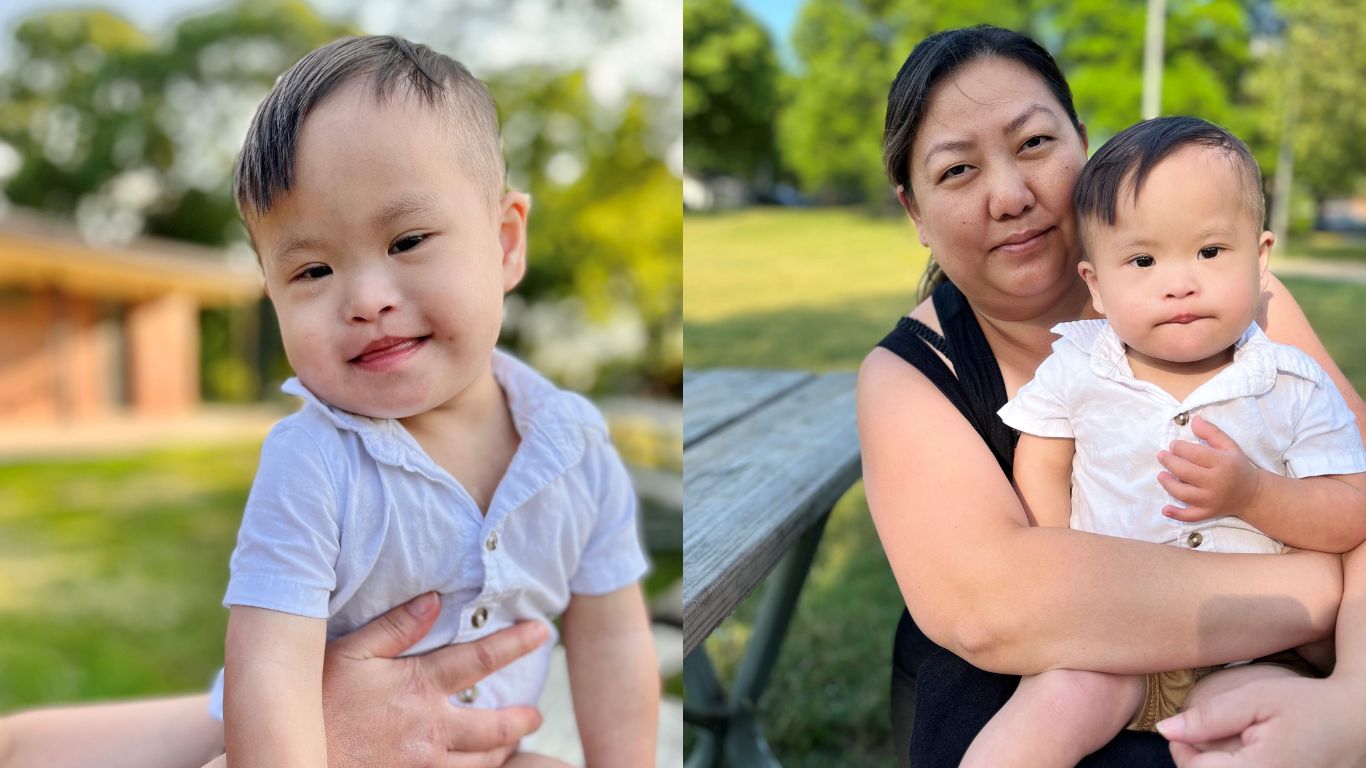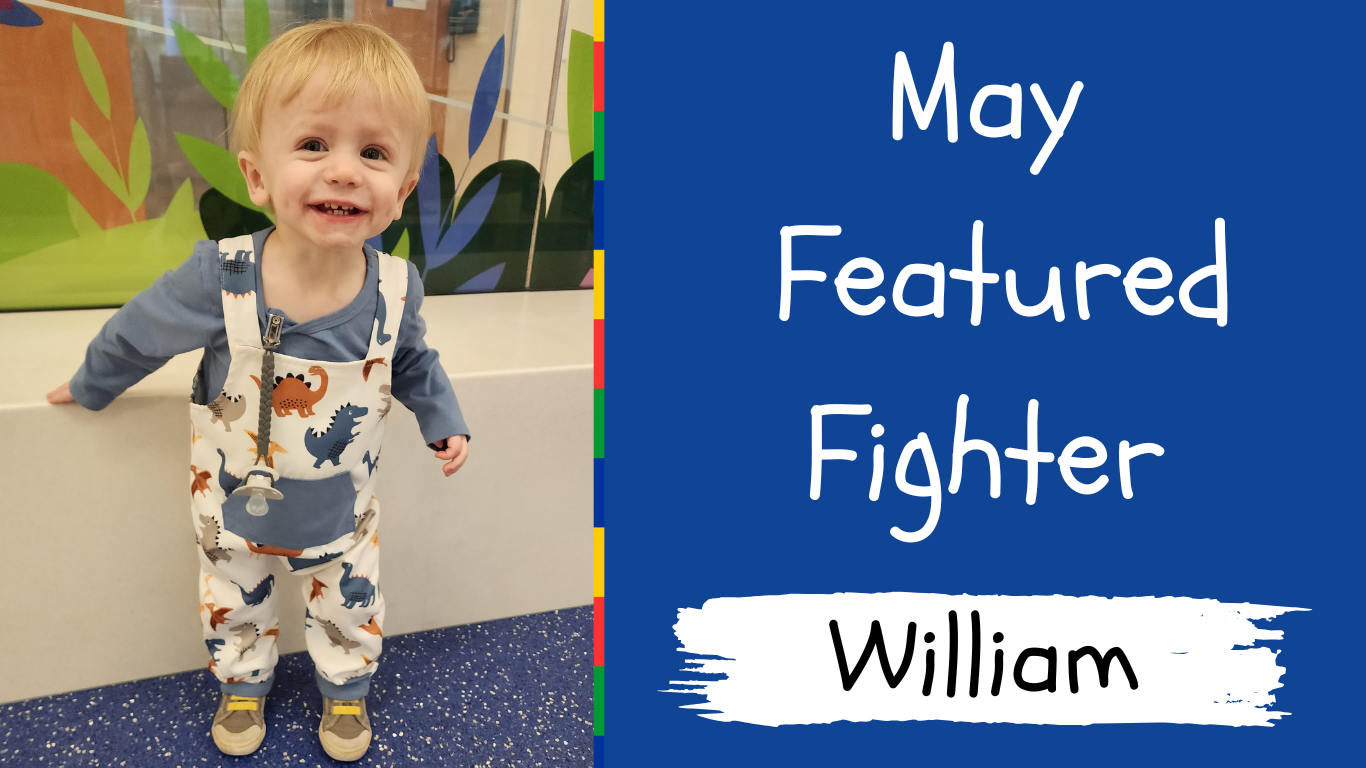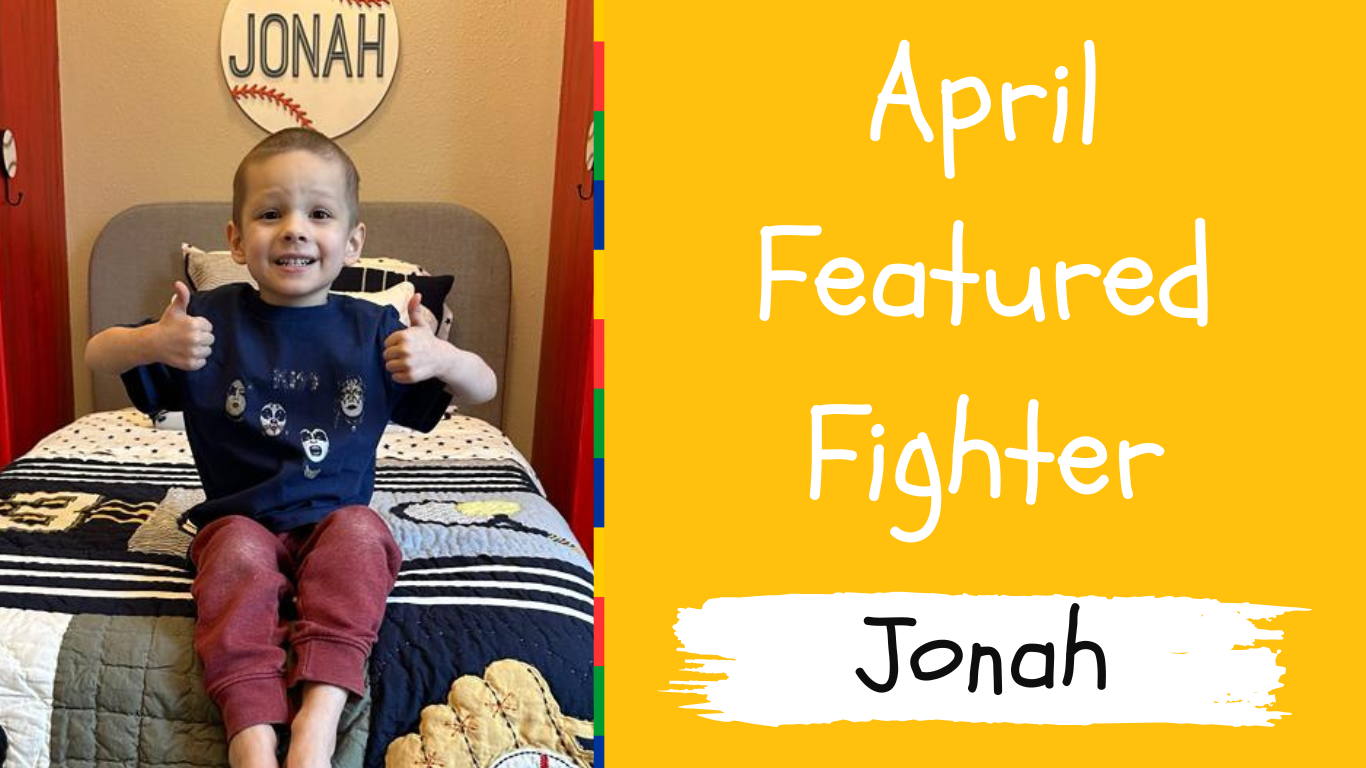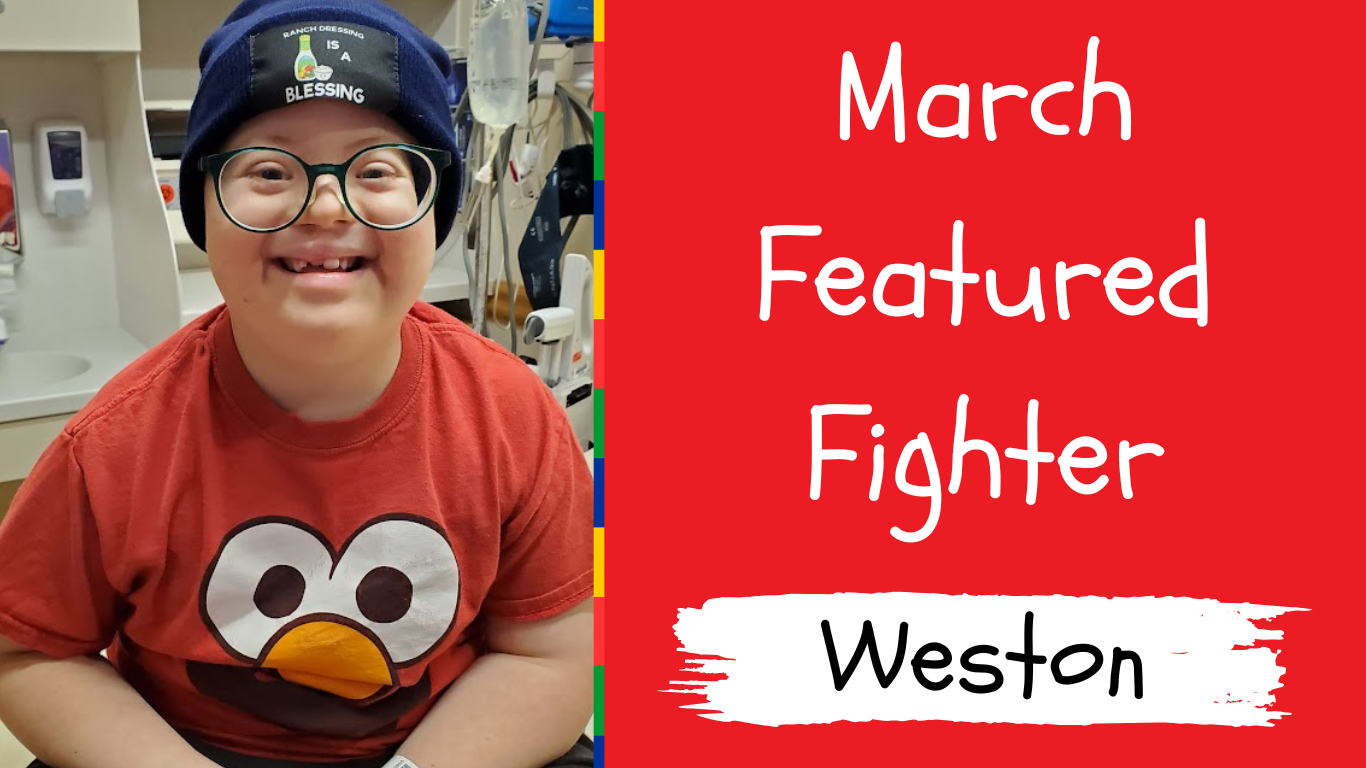Age: 5 Diagnosis: Bilateral Optic Pathway Gliomas and Gliomas of the Hypothalamus and Thalamus Meet…

Theodore’s Story
Age: 3 years
Diagnosis: Acute Myeloid Leukemia (AML)
Age of Diagnosis: 1 year
Favorite things: Elmo, pho, chatting with new friends
Meet Theodore- a little 3-year-old charmer who adores slurping up his mama’s homemade pho and playing in the sunshine with his two older siblings- experiencing the everyday things he missed out on for six months of his early life. His mom, Konnie, couldn’t quite put into words the incredible relief her and her husband, Bee, feel now that Theodore is finally in remission.
Theodore had a very shaky start to life. His newborn screenings displayed a heart murmur and hearing difficulties; and when he consistently struggled with eating, he was admitted for care in the NICU. Soon after, he was diagnosed with Down Syndrome, and his bloodwork revealed 4% blasts circulating in his system. Blasts are abnormal white blood cells produced in the bone marrow. These cells have the ability to multiply and crowd out the normal ones causing a child’s body to have difficulty fighting infection. 10% of children with Down Syndrome have this type of “pre-leukemia” or transient leukemia (TL), but it most often spontaneously resolves without any symptoms or treatment.
Konnie and Bee were anxious about a potential cancer diagnosis but chose to take things in stride, remaining hopeful for a healthy outcome. They trusted his doctors who were closely monitoring his blood work every month. At that point, their priority was seeing newborn Theodore through open-heart surgery as well as ear surgery.
Things took a sharp turn soon after energetic little Theodore turned one. He began losing his appetite and sleeping more than usual. Soon his tests revealed that the level of blasts in his blood, which had remained relatively stable throughout his first year, had shot up to 19%. With this change, Theodore was diagnosed with Acute Myeloid Leukemia (AML) and immediately admitted to Children’s Wisconsin for his first round of chemotherapy.
Because AML is such an aggressive cancer, its treatment must be equally as aggressive. Six rounds of chemotherapy, all inpatient, with only a couple weeks at home between each treatment. The average course of treatment for AML lasts about 6-9 months—much shorter than other cancer treatments. But the amount of time spent inpatient can be brutal for families.
Theodore passed the time at the hospital watching Elmo and playing with his nurses. Bee and Konnie alternated weeks staying in the hospital with their little guy, bending their full-time work schedules to accommodate this curve ball in their family. One parent with Theodore and the other with their two other children at home. The big-hearted nurses in the MACC Fund Center would frequently take him for wagon rides in the halls to offer Konnie the space to work remotely as she cared for her son.
Though Theodore handled his treatment with strength and a smile, the full-time nature of his treatment was incredibly hard on his family. It was logistically, emotionally, and even physically exhausting to have their family divided up like this for half a year. Theodore’s treatment was also during the height of COVID-19 which meant his siblings were never able to visit. And his family made the difficult decision to stay away from most of their friends and family to protect Theodore who was immunocompromised. Keeping their supportive community at a distance made this arduous experience all the more isolating.
But his family stayed strong, holding each other up during this dark time. On New Year’s Eve 2022, their whole family gathered in the parking lot of Children’s Wisconsin to welcome a fresh year all together with hope, strength, and light—united in this fight for Theodore’s life.
A few weeks later, Theodore completed his treatment, and his family brought him home with the hope that their little guy had said “good riddance” to cancer once and for all. He has now been out of treatment for 17 months but will continue to be closely monitored by his team to ensure he stays cancer-free. Once he reaches 2 years post-treatment, he will transition to the survivorship program.
Theodore’s mom is so grateful that Theodore will never remember his time battling for his life in the hospital, but his family will always bear the scars from the fight. Even though he is no longer in treatment, they worry about the long-term side effects from his rigorous chemotherapy regimen. They look forward to a time when doctors hold a better understanding of the link between Down Syndrome and leukemia and can offer safer treatments for kids. They hope for a future when parents no longer feel the helplessness they experienced in the face of this monster of a disease.
Thank you for supporting research for kids like little Theodore. Thank you for giving hope.
Copyright protected work of the MACC Fund. May not be used or distributed on behalf of any other organization or commercial purpose without MACC Fund’s explicit consent.




